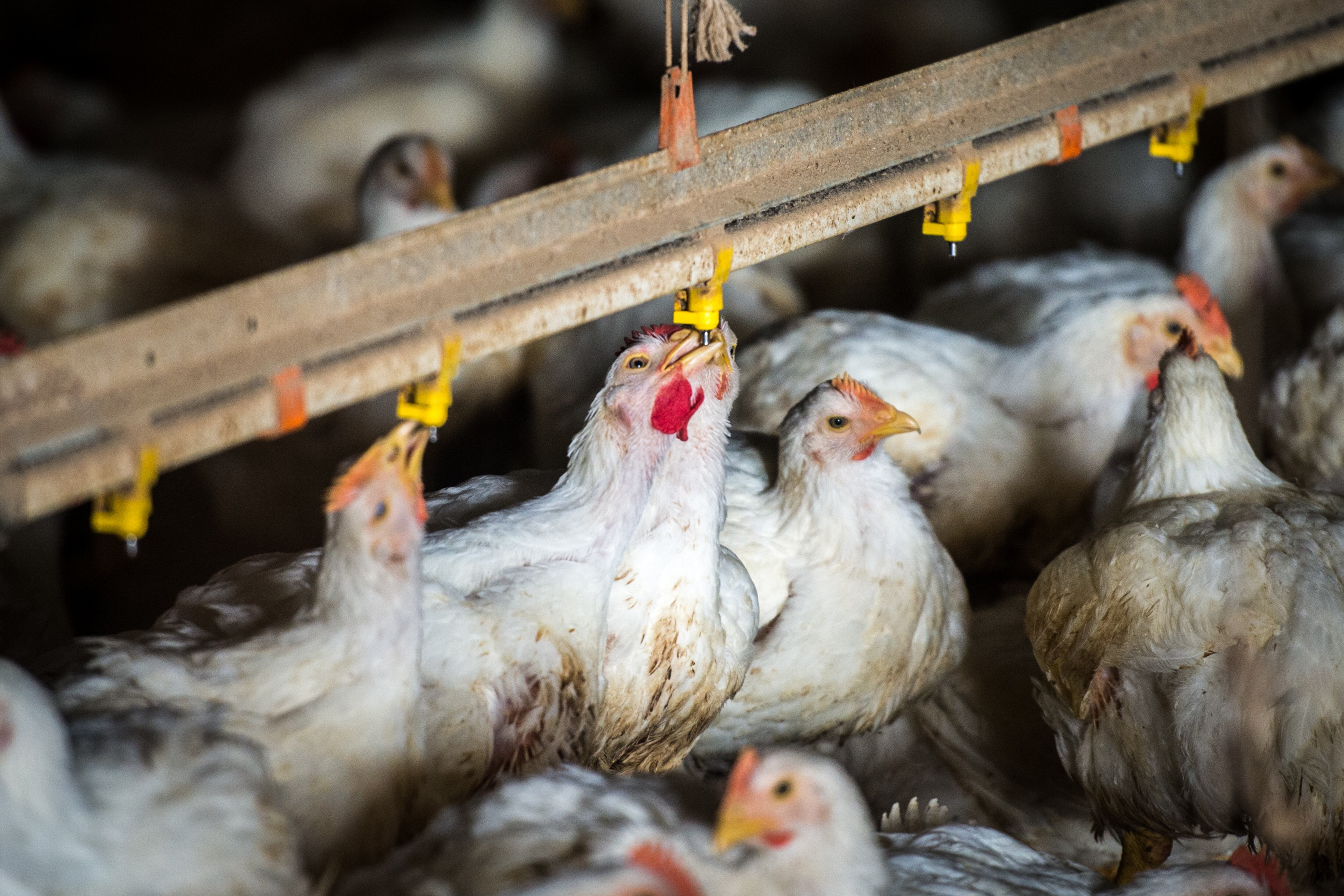Public health, explained: Sign up to receive Healthbeat’s free Atlanta newsletter here.
Bird flu has been confirmed in a second commercial poultry flock in Elbert County, the Georgia Department of Agriculture said Wednesday.
The second contaminated site, listed as Elbert 02, is 210 yards away from the first location, Elbert 01, where bird flu was confirmed Friday. The farms, owned by the same family, are “just across a dirt road from each other,” said Matthew Agvent, Georgia Department of Agriculture spokesperson.
The owners were not identified. The second site housed 130,000 broilers. The first had about 45,500 broilers on site.
Agriculture Department employees completed the culling process within 48 hours of initial detection of the H5N1 virus, while cleaning and disinfecting were ongoing at both sites, the department said.
The clean-up process can pose a risk to workers, said Andrew Pekosz, a professor of microbiology and immunology at Johns Hopkins Bloomberg School of Public Health.
“There are documented cases of poultry workers getting infected with H5N1 during the cleanup of commercial poultry buildings,” he said.
No human cases have been reported in Georgia.
Agvent said employees involved in the response are being monitored daily for clinical symptoms and are using personal protective equipment and following biosecurity measures. Testing is also available if needed.
Some of the main symptoms in humans include fever, cough, sore throat, and pink eye (conjunctivitis).
The Georgia Department of Public Health has conducted a risk assessment for the family who owns the farms and “can make testing available if necessary,” Agvent said.
The agency’s law enforcement officers had set up a perimeter around the area. All commercial poultry operations within 6.2 miles have been under quarantine since Friday, and bird flu testing will be conducted for at least two weeks.
The state has also indefinitely suspended all poultry exhibitions, shows, swaps, meets, and sales.
Retail sales of eggs and chickens or other poultry products will not be affected, the agency said.
“The risk of H5N1 in the food supply is very low, partly because H5N1 kills poultry so quickly, and poultry rarely survive infection,” Pekosz told Healthbeat on Tuesday.
With a mortality rate of 100%, poultry or eggs “never make it off a commercial farm before the outbreak is detected.”
Georgia’s $7.75 billion commercial poultry industry is one of the largest in the nation.
Previously, some 30,580 birds had been culled in Georgia due to bird flu since the start of the current outbreak in February 2022, according to the U.S. Department of Agriculture. About 30,000 of those came from an infected flock at a commercial duck breeder in Sumter County in 2023.
Bird flu has also been detected in three backyard chicken flocks, including one in Clayton County earlier this month. Here’s how to protect backyard flocks.
The Centers for Disease Control and Prevention has confirmed 68 human cases in the United States since 2022. The first human death was reported this month in Louisiana, in an elderly person who had other underlying health conditions and was likely exposed via a backyard flock.
Rebecca Grapevine is a reporter covering public health in Atlanta for Healthbeat. Contact Rebecca at rgrapevine@healthbeat.org.







